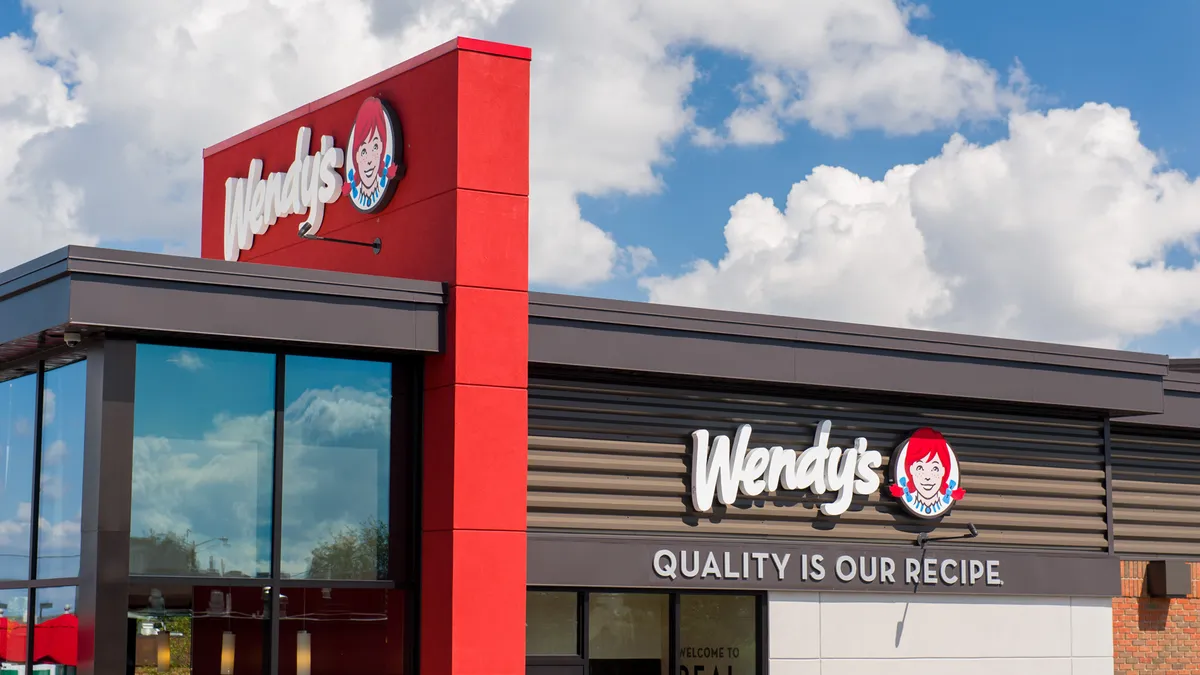NEW YORK — It's no secret that brands have grown more brash in their marketing, especially on social media, as they explore low-cost ways to spark real-time conversations online. Fast-food chain Wendy's is a major driver of this trend, frequently dishing out direct, cheeky jabs at competitors and developing an off-the-cuff voice online.
From its #NuggsForCarter campaign and Twitter rap battle with Wingstop to its mixtape of diss tracks that scored 758 million earned media impressions, Wendy's has become associated with clever marketing that resonates with consumers by striking the right amount of sass, EVP and chief concept and marketing officer Kurt Kane said during an Advertising Week panel on Thursday.
The chain's approach on social media has earned it nearly 1 million new Twitter followers so far this year, as well as a 113% jump in social media mentions, executives shared during the panel. Tweets intentionally aren't approved before they're posted because of the high trust its leadership has in the social media team. Wendy's strong social media presence and unique marketing has supported the chain's 22 straight quarters of same-restaurant sales growth, Kane noted.
"The brand was founded to challenge against the QSR industry and the QSR conventions, so [being sassy] is kind of in the wood at Wendy's at the heart of who we are," Kane said about using social media to directly call out competitors and strike an authentic cord with customers. "Every time we've done that very directly, we've seen people engage like crazy."
Crossing social media with culture
For Wendy's, connecting with social media users means living the founder's philosophy of embracing controversy and tension to capitalize on cultural conversations and speaking to people on a human level, which includes merging the brand's social voice with its broadcast and corporate voice to carry across platforms.
While the fast-food chain may be "the sassy friend you want to go to lunch with," according to Twitter's brand and content strategy lead Nina Mishkin, the tone is authentic to Wendy's and isn't a silver bullet for all brand personalities. "Every brand has to find what's right for them," Mishkin said during the panel.
Fostering fandom
Strategic use of social media has even helped Wendy's channel powerful fandom in a way that drives business results. In 2017, the fast-food chain hosted a pop-up restaurant in the U.K., where it doesn't currently have permanent locations. The one-day event saw lines down the block of people wanting to try Wendy's food for the first time because they were fans of the brand's Twitter posts.
"Wendy's capitalizes on that by conversing with customers and connecting with them on a deeper level. That's helped turned these customers into advocates for the brand in a special way," Mishkin said.
However, the chain's freewheeling approach to social media hasn't come without controversy. Last year, a meme on Twitter drew the ire of human rights groups after Wendy's posted a drawing of Pepe the Frog, a cartoon that's become a popular anti-Semitic character among hate groups.
"If we feel like we crossed a line, we get everyone on the phone and talk about it and say, 'We didn't love this one,' or 'It didn't quite sound like us,'" Kane said. "Sometimes the ones that don't feel good to us, the community loves."
Social media has also proved to be a "game changer" for Wendy's in an imbalanced marketing world, Kane said. Because of top rival McDonald's multi-billion-dollar marketing budget, Kane said it can "outshout" Wendy's by three or four times. Social media tips the scales back in Wendy's direction.
"We try to take whatever they're doing and turn it back around on them," he said. "If people in Chicago [where McDonald's is based] aren't kicking a trash can every morning because of something we did, we probably didn't do yesterday right."















